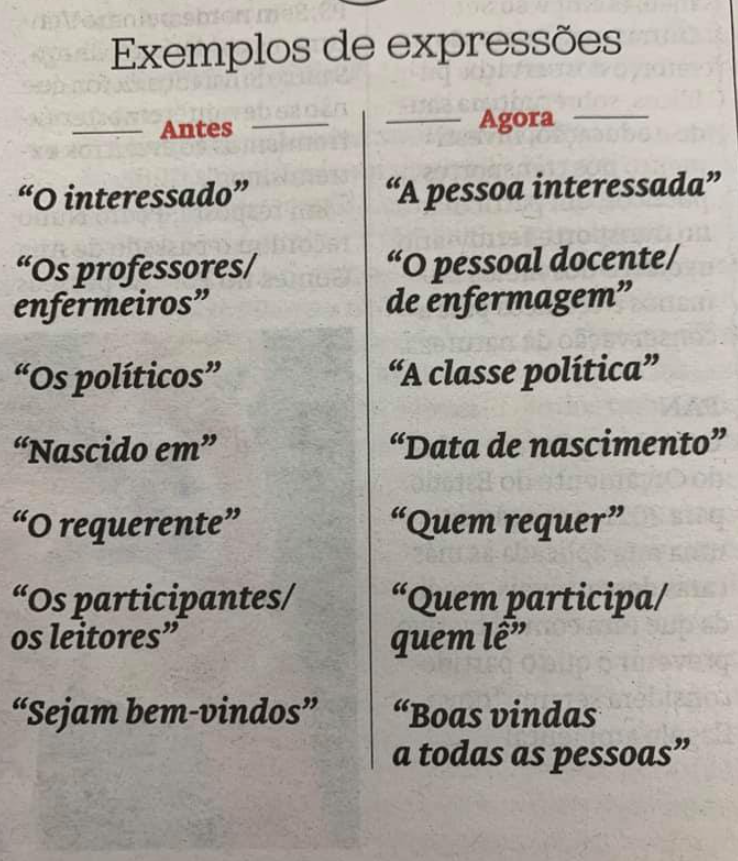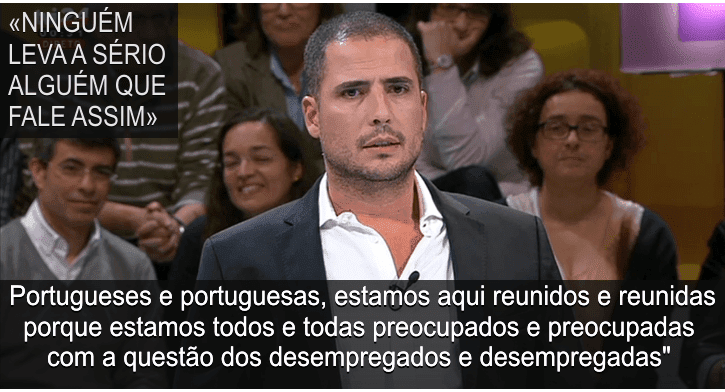| Pagina's in het onderwerp: [1 2] > | Poll: Is "inclusive language" something that has affected your language pair(s)? De persoon die dit onderwerp heeft geplaatst: ProZ.com Staff
|
|---|
This forum topic is for the discussion of the poll question "Is "inclusive language" something that has affected your language pair(s)?".
View the poll results »
| | | | neilmac
Spanje
Local time: 16:32
Spaans naar Engels
+ ...
Academic writers in Spain have taken to it with gusto. It doesn't really bother me when I'm translating, but when revising/proofreading text Spanish-speaking authors have come up with in English, it can be a bit of a slog.
| | | | Lieven Malaise
België
Local time: 16:32
Lid 2020
Frans naar Nederlands
+ ...
| No, and I don't know what that is. | Oct 25, 2022 |
I've voted for 'No, and I don't know what that is'. Not because I'm certain that inclusive language hasn't affected my language pairs, but just because I think it is great to pretend to know that it didn't affect my pairs and to subsequently admit that I don't know what the hell inclusive language is.
[Edited at 2022-10-25 08:51 GMT]
| | | |
First of all, it looks like this question infers that inclusive language is just about gender when in fact it's about respecting all people by acknowledging their specific experiences. One of my source languages is French, a language that has been deeply affected by inclusive language, but curiously enough not the documents I have been translating…
| | |
|
|
|
| Yes of course | Oct 25, 2022 |
Police officer, fire fighter, actor, chairperson etc
Sami, Inuit, Native American, people of colour
It's hard to keep track of all preferred terms, and some are not entirely clear-cut, but we must do our best even if our customers do not. Getting it wrong can be costly these days.
| | | |
What is an 'Inclusive language'?
| | | | | | Tom in London
Verenigd Koninkrijk
Local time: 15:32
Lid 2008
Italiaans naar Engels
ProZ.com Staff wrote:
This forum topic is for the discussion of the poll question "Is "inclusive language" something that has affected your language pair(s)?". View the poll results »
Not much, although there are occasional awkwardnesses when translating from Italian to English.
| | |
|
|
|
Alex Lichanow
Duitsland
Local time: 16:32
Engels naar Duits
+ ...
...and it is an extremely controversial topic for various reasons, to say the least.
| | | |
Ice Scream wrote:
Police officer, fire fighter, actor, chairperson etc
Sami, Inuit, Native American, people of colour
It's hard to keep track of all preferred terms, and some are not entirely clear-cut, but we must do our best even if our customers do not. Getting it wrong can be costly these days.
I have been very much affected when translating into Maltese and I had a very long job which was about teaching schoolchildren that certain jobs were not restricted to masculine or feminine so we were specifically asked to make sure we used inclusive language. This was extremely difficult as it meant being on the lookout for any parts that did not stand out straightaway as we would have become so used to using one gender form over another and because some terms, as Ice Scream pointed out, do not have feminine, masculine forms. I expect it would be impossible to use inclusive language in subtitling though because of character limits and it would be boring to continually read something in masculine form and then in feminine form, next to each other.
[Edited at 2022-10-25 14:05 GMT]
| | | | expressisverbis
Portugal
Local time: 15:32
Lid 2015
Engels naar Portugees
+ ...
To my surprise I have found this:
https://www.cig.gov.pt/wp-content/uploads/2021/05/ces_manual_linguagem_inclusiva.pdf
And this:

I wonder what happens with the word "grávida". "Pessoa grávida", "criatura grávida", "ser grávido"? And should we write "Todes" instead of "todos" or "todas"? 
So far, it hasn't affected me, but I have a feeling that the current project I am translating will reveal something...
With so many more serious problems in the world to deal with and people worrying about "unifying" genders in languages.
[Edited at 2022-10-25 13:52 GMT]
| | | |
Ah,........
Not really (yet????), but there is a "woke wave" blowing through Holland. So sooner or later .....
| | |
|
|
|
expressisverbis wrote:
To my surprise I have found this:
https://www.cig.gov.pt/wp-content/uploads/2021/05/ces_manual_linguagem_inclusiva.pdf
And this:

I wonder what happens with the word "grávida". "Pessoa grávida", "criatura grávida", "ser grávido"? And should we write "Todes" instead of "todos" or "todas"? 
So far, it hasn't affected me, but I have a feeling that the current project I am translating will reveal something...
With so many more serious problems in the world to deal with and people worrying about "unifying" genders in languages.
[Edited at 2022-10-25 13:52 GMT]
I thought I spoke some Portugese, apparently from another era.
What is wrong with "os políticos" or "sejam bem-vindos"?
Are you sure this is not a joke?
[Edited at 2022-10-25 15:31 GMT]
| | | | expressisverbis
Portugal
Local time: 15:32
Lid 2015
Engels naar Portugees
+ ...
Robert Rietvelt wrote:
I thought I spoke some Portugese, apparently from another era.
What is wrong with "os políticos" or "sejam bem-vindos"?
Are you sure this is not a joke?  [Edited at 2022-10-25 15:31 GMT]
Both words are masculine (os "políticOs" and "bem-vindOs").
To avoid using the masculine gender only and include both feminine and masculine, "we" have overcome this with "a classe política" (the political class) and "as boas-vindas" (welcome).
Yes, there are things I really think they are a joke, like this one about "inclusive language" too:

I think you work with Spanish, so here it is a translation to get a better understanding, because in English it won't work: "Portugueses y portuguesas, estamos aquí reunidos y reunidas porque a todos nos preocupan los desempleados y las desempleadas".
https://portugalglorioso.blogspot.com/2016/05/ricardo-araujo-goza-com-bloco-esquerda.html
In my humble opinion, for once in our life, let's think about improving other things more important than this.
| | | | Michele Fauble 
Verenigde Staten
Local time: 08:32
Lid 2006
Noors naar Engels
+ ...
| Inclusive in meaning | Oct 25, 2022 |
expressisverbis wrote:
To my surprise I have found this:
https://www.cig.gov.pt/wp-content/uploads/2021/05/ces_manual_linguagem_inclusiva.pdf
And this:

I wonder what happens with the word "grávida". "Pessoa grávida", "criatura grávida", "ser grávido"? And should we write "Todes" instead of "todos" or "todas"? 
So far, it hasn't affected me, but I have a feeling that the current project I am translating will reveal something...
With so many more serious problems in the world to deal with and people worrying about "unifying" genders in languages.
[Edited at 2022-10-25 13:52 GMT]
Those “antes” forms are masculine in form, but inclusive in meaning. Not much different from “pessoa” being feminine in form, but inclusive in meaning.
| | | | | Pagina's in het onderwerp: [1 2] > | To report site rules violations or get help, contact a site moderator: You can also contact site staff by submitting a support request » Poll: Is "inclusive language" something that has affected your language pair(s)? | CafeTran Espresso | You've never met a CAT tool this clever!
Translate faster & easier, using a sophisticated CAT tool built by a translator / developer.
Accept jobs from clients who use Trados, MemoQ, Wordfast & major CAT tools.
Download and start using CafeTran Espresso -- for free
Buy now! » |
| | Pastey | Your smart companion app
Pastey is an innovative desktop application that bridges the gap between human expertise and artificial intelligence. With intuitive keyboard shortcuts, Pastey transforms your source text into AI-powered draft translations.
Find out more » |
|
| | | | X Sign in to your ProZ.com account... | | | | | |




































